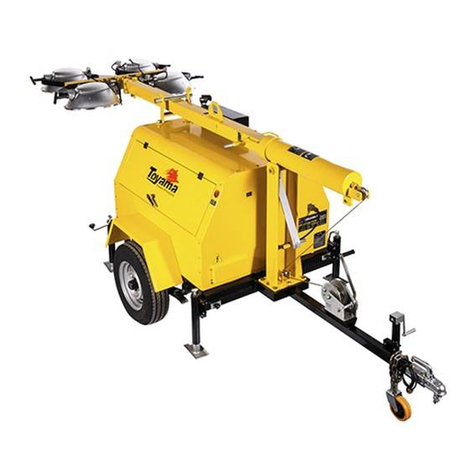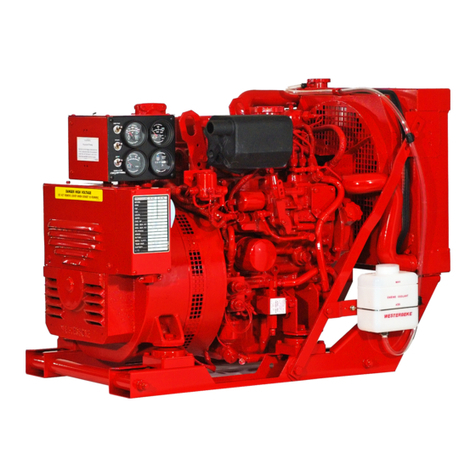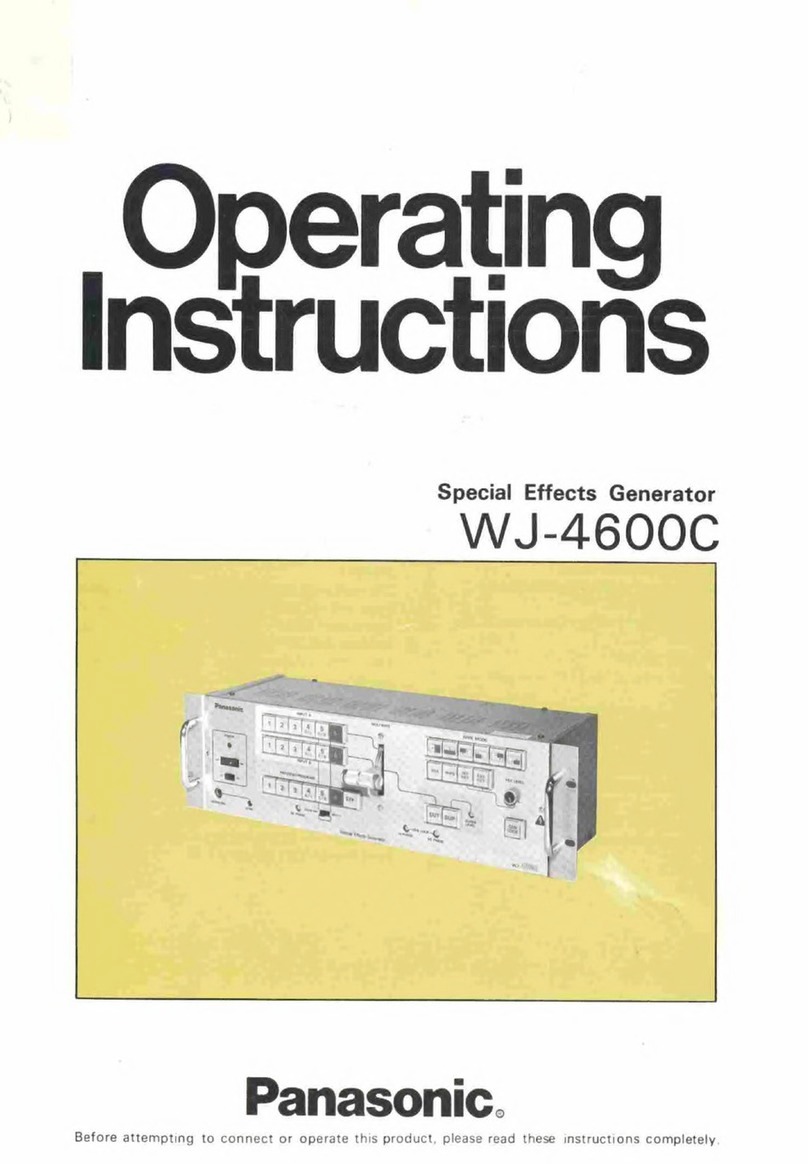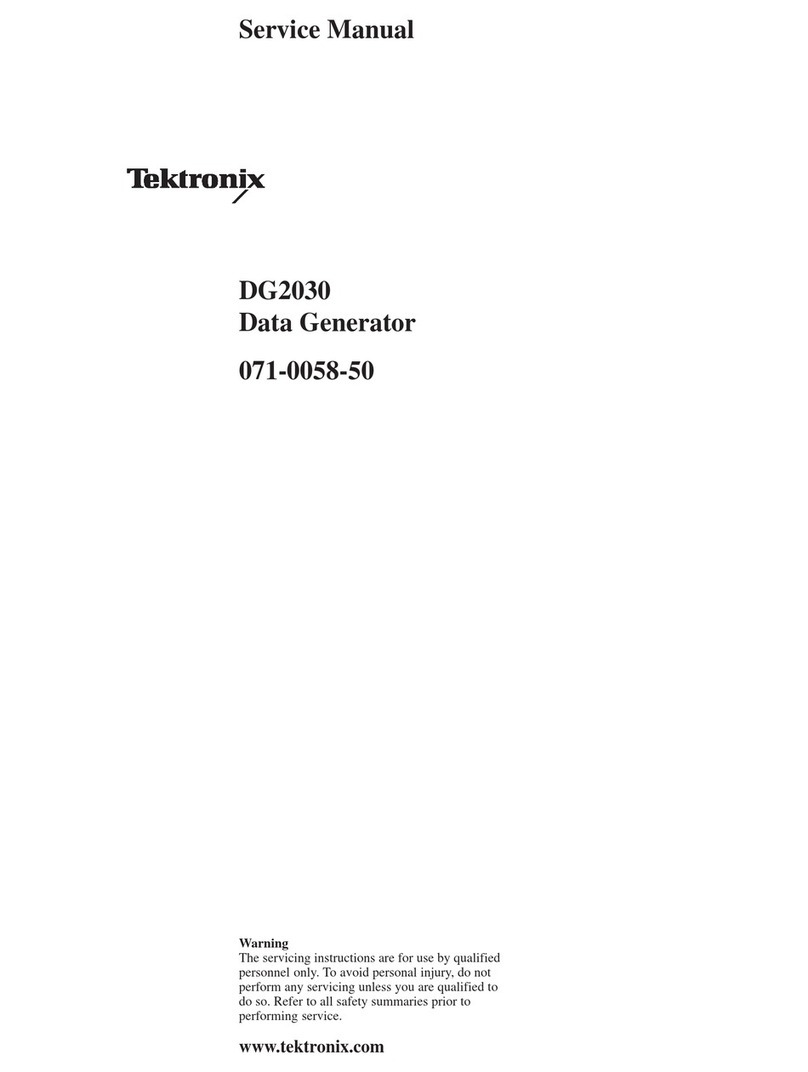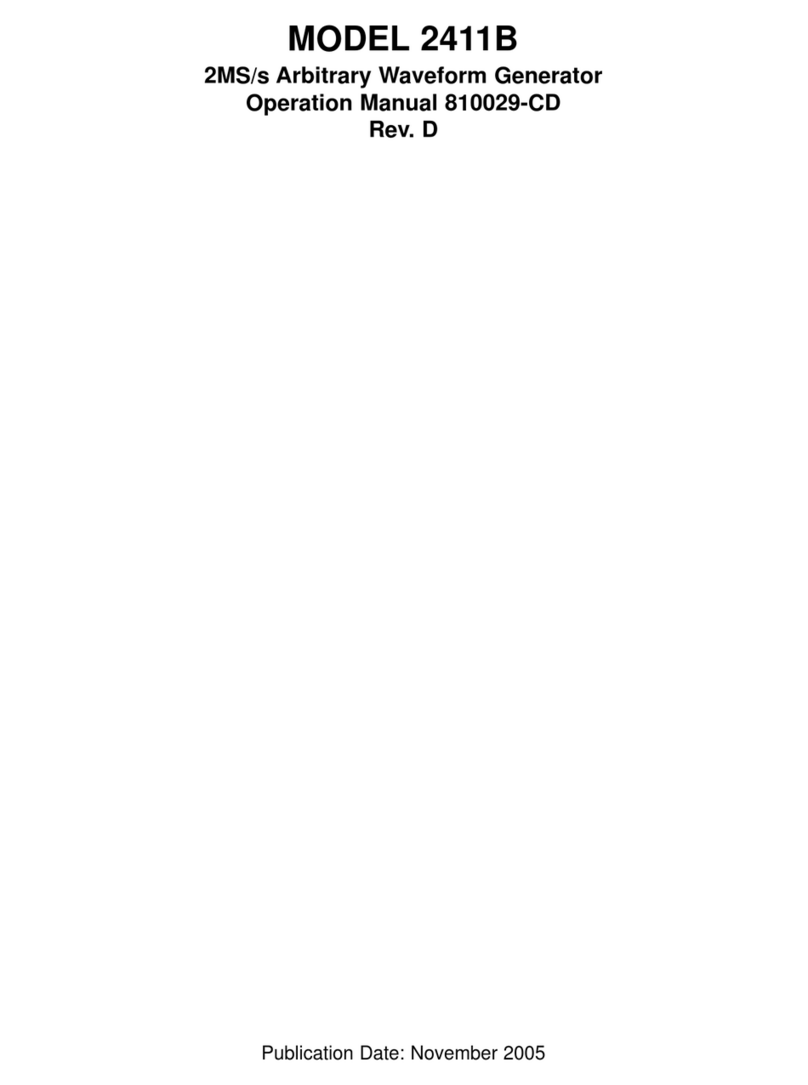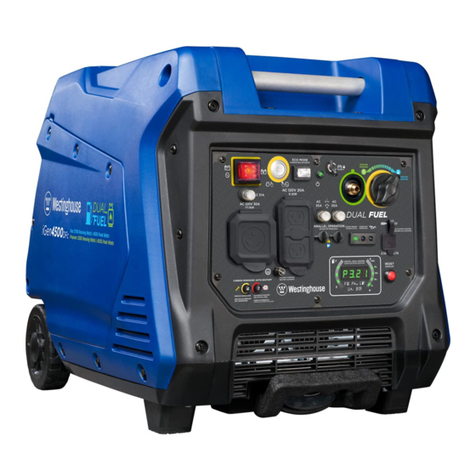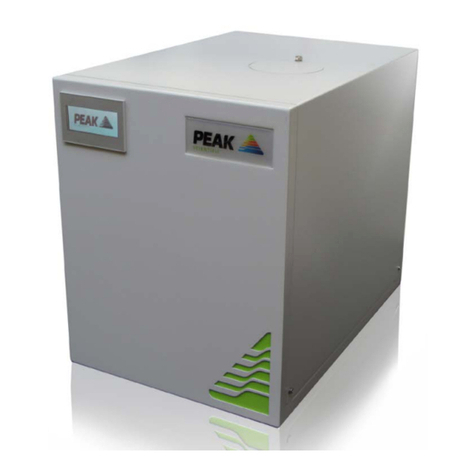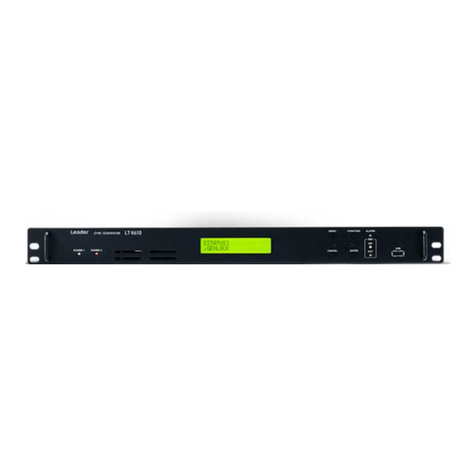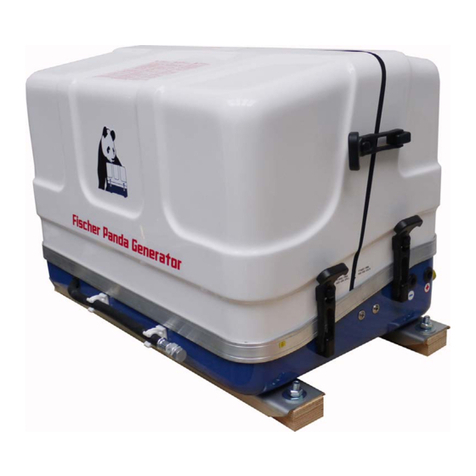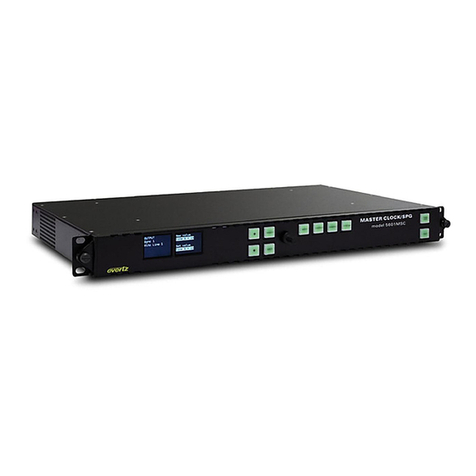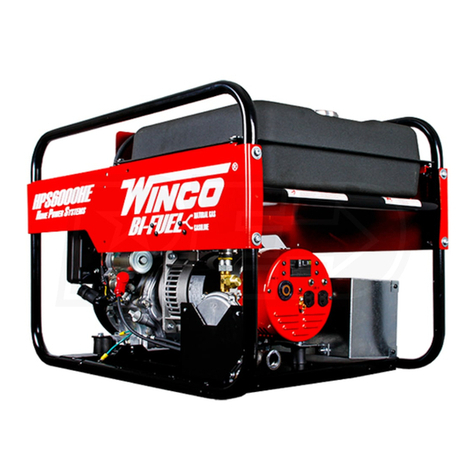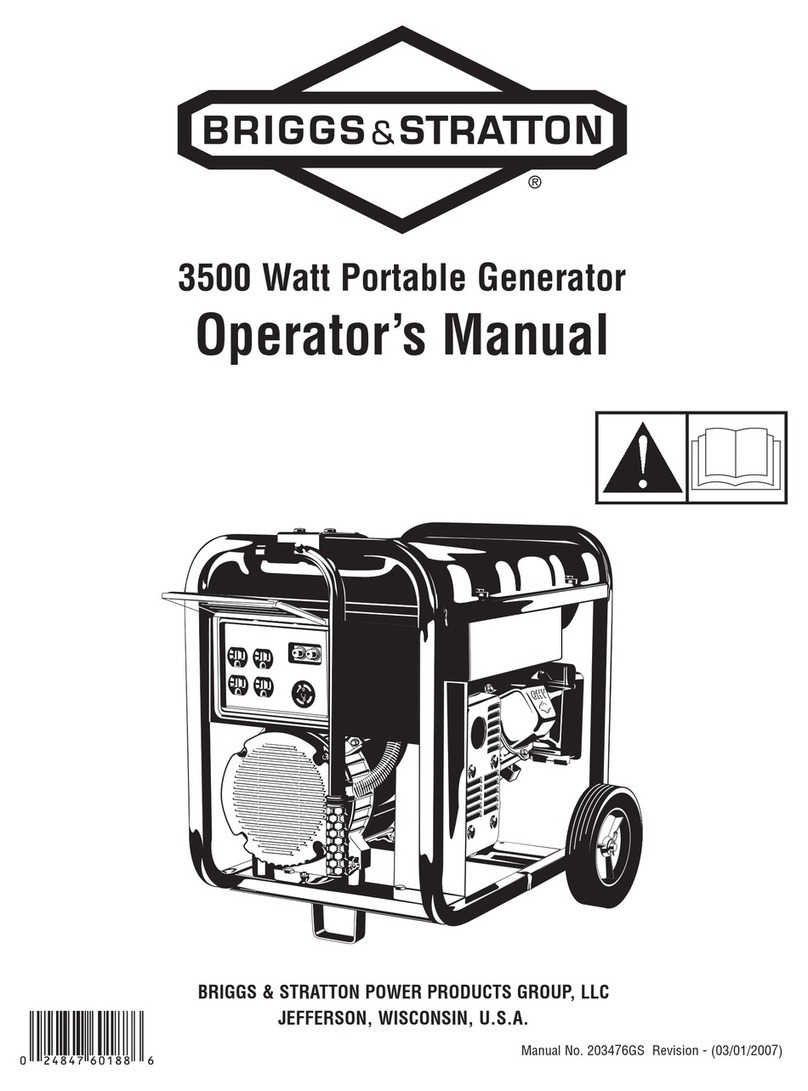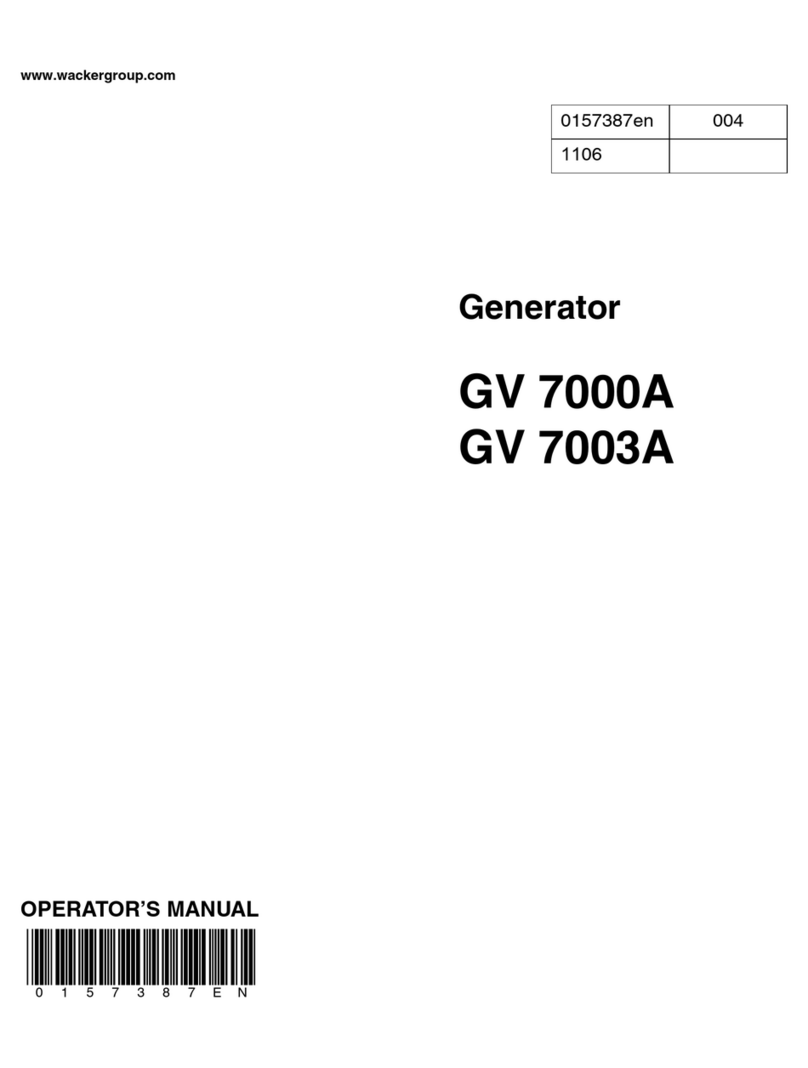Diamond Products CP38KXL User manual

CORE POWER
OPERATOR’S MANUAL
CP38KXL
HYDRAULIC POWER UNIT
July, 2023
Part #: 1802747-01


CP38KXL HYDRAULIC POWER UNIT OPERATOR’S MANUAL
Table of Contents
Introduction ............................................................................................................................................. 5
CP38KXL Controls .............................................................................................................................. 6
CP38KXL Dimensions ......................................................................................................................... 7
CP38KXL Specifications ..................................................................................................................... 8
Operating .............................................................................................................................................. 13
General Operating Precautions ......................................................................................................... 13
Emergency Stop ................................................................................................................................ 13
Activating the Emergency Stop ..................................................................................................... 13
Deactivating the Emergency Stop ................................................................................................. 13
Handlebars ........................................................................................................................................ 13
Adjusting the Handlebars .............................................................................................................. 13
Flow Control Valve ............................................................................................................................ 13
Pressure Relief Valve ........................................................................................................................ 13
Adjusting the Pressure Relief Valve .............................................................................................. 14
Hydraulic Oil Cooler .......................................................................................................................... 14
Air to Oil Cooler (Optional) ................................................................................................................ 14
Hoses ................................................................................................................................................ 15
Hose Connections ......................................................................................................................... 15
Fuel ................................................................................................................................................... 15
Adding Fuel ................................................................................................................................... 15
Engine ............................................................................................................................................... 15
Tasks Prior to Starting the Engine ................................................................................................. 15
Starting the Engine ........................................................................................................................ 15
Stopping the Engine ...................................................................................................................... 16
Heating Cold Oil ............................................................................................................................ 16
Maintaining Hydraulic Oil Temperature ......................................................................................... 16
Operating Driven Equipment ............................................................................................................. 16
Maintenance ......................................................................................................................................... 17
General ............................................................................................................................................. 17
Pre Maintenance Preparations .......................................................................................................... 17
General Cleaning .............................................................................................................................. 17
Cleaning Techniques ..................................................................................................................... 17
Service Schedule .................................................................................................................................. 18
Daily Service ......................................................................................................................................... 19
Check Engine Oil Level ..................................................................................................................... 19
Check Fuel Level .............................................................................................................................. 19
Check the Hydraulic Oil Level ........................................................................................................... 19
Check the Hydraulic Oil Filter ............................................................................................................ 20
Replacing the Hydraulic Oil Filter .................................................................................................. 20
Drain the Water from the Oil Cooler .................................................................................................. 20
25 Hour Service .................................................................................................................................... 20
Clean the Low Profile Pre-cleaner Filter ........................................................................................... 20
100 Hour Service .................................................................................................................................. 21
Change the Engine Oil and Filter ...................................................................................................... 21
150 Hour Service .................................................................................................................................. 22
Replace the Low Profile Air Cleaner Element ................................................................................... 22
Replace the fuel Filter ....................................................................................................................... 22
200 Hour Service .................................................................................................................................. 23
Replace Hydraulic Oil ........................................................................................................................ 23
500 Hour Service .................................................................................................................................. 23
Replace the Spark Plugs
................................................................................................................... 23

CP38KXL HYDRAULIC POWER UNIT OPERATOR’S MANUAL
Regular Maintenance ............................................................................................................................ 23
Engine ............................................................................................................................................... 23
Battery ............................................................................................................................................... 23
Battery Type .................................................................................................................................. 24
Servicing the Battery ..................................................................................................................... 24
Appendix A ........................................................................................................................................ 28
Troubleshooting ................................................................................................................................ 28
Appendix B ........................................................................................................................................ 29
Additional Resources..................................................................................................................... 29
Appendix C........................................................................................................................................ 30
Model and Serial Numbers ............................................................................................................ 30

CP38KXL HYDRAULIC POWER UNIT OPERATOR’S MANUAL
Introduction
Welcome to the Diamond Products family and thank you for choosing Diamond Products equipment.
At Diamond Products we are driven to ensure you are completely satisfied with your product and
continually strive to improve our product line so that we can offer you the best possible equipment in
the industry.
This operator’s manual is a critical document that provides pertinent information regarding the safety,
operation, maintenance, and care of your new equipment. Keep this manual available at all times.
Operate the equipment and all of its components according to this manual. Failure to comply with and
understand the following safety, operation and maintenance instructions can result in serious injuries
and/or death. All operators must be properly trained or supervised by experienced personnel prior to
using this equipment and should understand the risks and hazards involved. Diamond Products
discourages improper or unintended equipment usage and cannot be held liable for any resulting
damages.
Equipment modifications should be made by Diamond Products to ensure safety and design. Any
modifications made by the owner(s) are not the responsibility of Diamond Products and void all
equipment warranties if a problem arises as a result of the modification.
Refer to the Diamond Products Parts List for additional information and part diagrams. Refer to the
engine/motor manual and manufacturer as the primary source for all safety, operations, and
maintenance instructions regarding the engine/motor. Prior to operating, record the equipment’s serial
number, and the engine’s/motor’s model and serial numbers in Appendix C.
5

CP38KXL HYDRAULIC POWER UNIT OPERATOR’S MANUAL
CP38KXL Controls
1. Flow Control Valve – Allows the operator
the ability to increase or decrease flow from
the hydraulic tank to the tool(s).
2. Hydraulic Gauge – Provides visual
indication of hydraulic oil pressure.
3. Tach/Hour Meter - Provides visual
indication of engine speed and total
number of engine operating hours.
4. Emergency Stop Button – Stops the
engine
5. Inlet Water Connection – Allows cooling
water enter into the hydraulic oil cooler.
6. Outlet Water Connection – Allows cooling
water to discharge from the hydraulic oil
cooler.
7. Pressure Port Connection (1/2”) –
Attachment point for 1/2” hydraulic oil
supply hose.
8. Return port Connection (1/2”) –
Attachment point for 1/2" hydraulic oil
return hose.
9. Pressure Por Connection (3/4”) –
Attachment point for 3/4" hydraulic oil
supply hose.
10. Return Port Connection (3/4”) –
Attachment point for 3/4” hydraulic oil
return hose.
6

CP38KXL HYDRAULIC POWER UNIT OPERATOR’S MANUAL
CP38KXL Dimensions
CP38KXL Dimensions Inches Millimeters
A Unit Height 40 1016
B Unit Length 52-1/4 1327
C Unit Width 27 686
7

CP38KXL HYDRAULIC POWER UNIT OPERATOR’S MANUAL
CP38KXL Specifications
Engine Kohler PRO EFI ECH980
Emission Regulation US EPA & EU Stage V
Engine Type Kohler, 4-cycle, gasoline, OHV, cast iron cylinder liners,
aluminum block, electronic fuel injection
Engine Max Power 38 HP (28.3 kw) @3600 rpm (Kohler rating)
Peak Torque 58 lb.-ft (78.6 Nm) @ 3400 rpm
Engine Air Filtration Low profile paper element with pre-cleaner
Battery 12 Volt (300 CCA), Group U1
Starter 12 Volt solenoid shift starter
Fuel Type Gasoline, Unleaded, 87 Octane or higher
Fuel Tank 4.4 Gallon (16.7 Liter) with fuel gauge level indication
Engine Oil** 2 Qt. (1.9 Liter) 10W-30
Hydraulic Pump Casappa PLP20, 1.0 CI, 3.6 KSI
Hydraulic Fluid Mobile DTE10 EXCEL 46, 11 Gal. (41.6 Liter)
Max. GPM 16 GPM (60.6 L/M) @ no load, 3600 rpm
Hydraulic Relief 3000 psi (83 bar), factory set, adjustable
Lubrication Type NLGI #2 Lithium grease
Wheels 12” x 2-1/2” x 1” rubber tread x 2-3/4” steel hub
** See Kohler engine manual for additional oil specifications based on climate.
8

CP38KXL HYDRAULIC POWER UNIT OPERATOR’S MANUAL
Safety
Operate the equipment and all of its
components according to this manual. Failure
to comply with and understand the following
safety, operation and maintenance instructions
can result in serious injuries and/or death. All
operators must be properly trained or
supervised by experienced personnel prior to
using this power unit and should understand
the risks and hazards involved. Diamond
Products discourages improper or unintended
equipment usage and cannot be held liable for
any resulting damages.
Equipment modifications should be made by
Diamond Products to ensure safety and
design. Any modifications made by the
owner(s) are not the responsibility of Diamond
Products and void all equipment warranties if a
problem arises as a result of the modification.
Refer to the Diamond Products Parts List for
additional information and part diagrams. Refer
to the engine manual and manufacturer as the
primary source for all safety, operations, and
maintenance instructions regarding the engine.
Prior to operating, record the power unit’s
serial number, and the engine’s model and
serial numbers in Appendix C.
Notice: The information in this manual may
be updated at any time!
Safety Alerts
DANGER
Serious injuries and/or death will occur if
these instructions are not followed.
WARNING
Serious injuries and/or death could occur if
these instructions are not followed.
CAUTION
Mild and/or moderate injuries could occur if
these instructions are not followed.
Proposition 65
PROPOSITION 65
WARNING: This product
produces gasoline or diesel
engine exhaust, which is known
to the state of California to cause
cancer, birth defects or other
reproductive harm. For more
information go to:
WWW.P65WARNINGS.CA.GOV
Spark Arrester Requirement
WARNING
In the State of California it is a violation of
section 4442 or 4443 to use or operate the
engine on any forest-covered, brush-
covered, or grass-covered land unless
the engine is equipped with a spark arrester,
as defined in section 4442, maintained
in effective, working order or the engine
is constructed, equipped, and maintained
for the prevention of fire pursuant to
section 4443.
Respiratory Hazards
WARNING
Concrete cutting produces dust and fumes
known to cause illness, death, cancer,
respiratory disease, birth defects, and/or
other reproductive harm. Safety protection
techniques include, but are not limited to:
• Wearing gloves.
• Wearing safety goggles or a face
shield.
• Using approved respirators.
• Washing work clothes daily.
• Using water when wet cutting to
minimize dust.
• Washing the hands and face prior to
eating/drinking.
For additional safety and self-protection
information contact your employer, the
Occupational Safety and Health
Administration (OSHA), and/or The National
Institute for Occupational Safety and Health
(NIOSH).
9

CP38KXL HYDRAULIC POWER UNIT OPERATOR’S MANUAL
General Safety
• Read and understand all safety,
operations, and maintenance instructions
provided in this manual prior to operating or
servicing the power unit.
• Keep equipment components clean and
free of slurry, concrete dust, and debris.
• Inspect water hoses prior to operating the
equipment. Clean, repair, or replace
damaged components.
• Inspect hydraulic hoses prior to operating
the equipment. Clean, repair, or replace
damaged components.
• Raise the equipment to a proper height for
access when working underneath the
equipment. Use chocks to block the
wheels, and fit blocks or jacks under the
frame edges.
• Repair the equipment immediately when a
problem arises.
• Replace equipment decals if unreadable.
• Dispose of all hazardous waste materials
according to city, state, and federal
regulations.
• Always have a phone nearby, and locate
the nearest fire extinguisher and first aid kit
prior to operating the equipment.
• Operate the equipment wearing flame
resistant clothing.
• Underage or non-trained personnel should
not operate the equipment.
• Keep all body parts away from rotating
machinery.
• Replace all guards and access panels
(unless stated otherwise) prior to operating
the equipment.
DO NOT:
• Assume the equipment will remain still
when parking/stopping the equipment on a
slope. Chock the wheels to help prevent
unnecessary movement.
• Drop equipment, supplies, tools, etc., when
handling to help prevent injuries.
• Lift and carry equipment, supplies, tools,
etc., that are too heavy and/or cannot be
lifted easily.
• Operate the equipment without using the
appropriate safety equipment required
for the work task.
• Operate or service the equipment with any
clothing, hair, or accessories that can snag
in the machinery, which could lead to
serious injuries or death!
• Operate the equipment using attachments
not associated with or recommended for
the equipment.
• Operate the equipment around combustible
materials.
• Operate the equipment with anyone near
the work area.
• Operate the equipment until all
unnecessary materials have been removed
from the work area.
• Operate the equipment with loose nuts,
screws, and bolts.
• Operate the equipment when ill or fatigued.
• Operate the equipment under the influence
of drugs and/or alcohol.
• Operate the equipment on steep slopes.
• Touch hot components when operating the
equipment.
• Leave the equipment unattended until the
engine is off.
• Place the equipment into storage until it
has cooled down.
• Service the equipment until it has cooled
down.
• Service the equipment with the engine
running.
10

CP38KXL HYDRAULIC POWER UNIT OPERATOR’S MANUAL
Battery and Electrical Safety
• Ignitable explosive gases are
emitted from the battery. DO
NOT expose the battery to
sparks or open flames.
• Keep the area around the battery well-
ventilated.
• Keep the battery level when handling it.
• Use protective eyewear or a face shield,
and avoid contact with the skin when
handling/servicing the battery.
• Use a proper battery tester when testing
the battery strength.
• Always be sure to connect the battery
cables to the proper terminal when
reconnecting the cables.
• Occasionally inspect the battery, cables,
clamps, and terminals for damages.
Service components as necessary.
• Always keep the battery cable clamps
away from the battery terminals when the
battery is disconnected to avoid accidental
connections while servicing.
• Immediately rinse your clothing, skin, or
eyes with water if exposed to battery acid.
Seek medical attention immediately!
• Disconnect the battery prior to servicing all
equipment components (unless stated
otherwise).
• Remove the battery when storing the
equipment for longer periods.
• Always use the correct size fuses (amps) to
prevent fires.
Fuel Safety
• Always use caution when refueling.
• Store all fuel in appropriate safety
containers.
• DO NOT operate the equipment with a fuel
leak.
• DO NOT fuel the equipment with the
engine running.
• Let the engine cool prior to adding fuel.
• Refer to the engine manual for
recommended fuels.
• Always use appropriate fuels in cold
weather.
• Move the equipment away from the
refueling area prior to starting the engine.
•
DO NOT smoke or expose fuel
to open flames when filling the
fuel tank or working with fuel
.
• Clean up any spilled fuel prior to starting
the engine.
•
Drain the fuel tank and fuel lines when
storing the equipment for longer periods of
time. Refer to the engine manual for
additional recommendations.
Engine Safety
• Refer to the engine manual as the primary
source for engine safety.
• Always know how to turn off the engine
quickly for emergency purposes.
• Fill the fuel tank and check the oil level
prior to starting the engine.
•
Keep all body parts away from
rotating equipment parts with
the engine in operation.
• DO NOT start the engine without the air
filter(s) installed.
• DO NOT allow dust to enter the air intake
tube when cleaning/replacing air filter(s).
• Replace damaged components
immediately that may allow dust to enter
the engine.
• DO NOT leave the engine running
unattended.
•
Always operate the equipment in
well-ventilated areas.
Concentrated engine exhaust
can cause loss of consciousness and/or
death
.
• DO NOT touch the engine/muffler
assembly with the engine running, and
always let them cool down prior to touching
or servicing the equipment.
• Handle hot oil carefully when changing the
oil.
• Let the engine cool prior to removing
pressurized caps (applicable models).
•
DO NOT use any starter substances or
starter fluids (e.g., starter fluid sprayed into
the air filter) when starting the engine using
a glow plug (applicable models). These
materials are extremely flammable and
explosive, and can melt parts or possibly
explode when used to help start the
engine.
11

CP38KXL HYDRAULIC POWER UNIT OPERATOR’S MANUAL
Hydraulic Safety
• Turn off the engine prior to servicing
hydraulic components.
• Always make sure any hydraulic
components being serviced are not
supporting the weight of other equipment
components. If a particular component is
under pressure when connection points are
loosened, oil may spray out forcefully.
• Always place a piece of
cardboard or paper up against
hydraulic components, or use a
leak detection fluid to check for
hydraulic fluid leaks. Keep all body parts
away from leaks and/or areas that may
eject hydraulic fluid. Pressurized
hydraulic fluid can penetrate the skin,
causing serious injuries. Seek medical
attention immediately!
Transporting Safety
• Make sure the truck/trailer is in good,
working condition and sufficient to transport
the load. DO NOT tow the equipment
behind a vehicle.
• Close the fuel shutoff valve (applicable
models) when transporting.
• Drain the fuel tank when transporting long
distances.
• Use ramps that will support the weight of
the equipment and yourself when loading
or unloading.
• Chock the wheels and secure the power unit
in the truck/trailer prior to transporting.
• Refer to the Department of Transportation
(DOT) for additional transportation
recommendations.
Lifting Safety
• Move yourself and all others away
from the lifting area when hoisting
the power unit to prevent being
crushed.
• Secure the appropriate hoisting cables, straps,
and/or chains to the power unit’s designated lift
point prior to hoisting.
• Never use the tie-down brackets (applicable
models) to lift the power unit.
• DO NOT attempt to lift the power unit
irresponsibly and/or improperly.
12

CP38KXL HYDRAULIC POWER UNIT OPERATOR’S MANUAL
Operating
General Operating Precautions
•
Prior to operating the power unit, read the
operator’s manual thoroughly and ensure
that you understand the safe and proper
operation of the power unit.
•
Use approved personal protective
equipment at all times while operating the
power unit.
•
Ensure that there is firefighting equipment
and a first aid kit nearby while operating the
power unit.
•
Ensure the work area is free of
obstructions, people, and/or animals prior
to operating the power unit.
Emergency Stop
If an emergency condition should arise, the
power unit is equipped with an emergency stop
button located on the front of the control panel.
The emergency stop places the power unit into
safe mode allowing the operator to address the
emergency condition.
NOTE: Only use the emergency stop in an
emergency condition. Do not use it to stop the
power unit during normal operations.
Activating the Emergency Stop
To activate the emergency stop, press down
on the emergency stop button. The engine will
shut off.
Deactivating the Emergency Stop
Prior to deactivating the emergency stop,
ensure that the power unit is back into a safe
operating condition. Then turn the emergency
stop button clockwise until it springs back into
position. The power unit can now be restarted.
Emergency Stop Button
Handlebars
The handlebars help to guide and maneuver
the power unit. The handlebars have two
positions for operation, fully extended or
retracted for storage and transport. Both
positions can be locked in place using the
provided detent pins.
Handlebars
Adjusting the Handlebars
1. Remove the detent pin holding the
handlebar in the handlebar tube.
2. Move the handlebar to the desired position
by aligning the hole through the handlebar
with the corresponding hole in the
handlebar tube.
3. Reinsert the detent pin through the holes to
lock the handlebar in place.
4. Repeat for the second handlebar.
The pressure compensated flow control valve
allows full flow control while the gas engine
remains at its most efficient wide-open throttle.
This allows a higher operating pressure at all
flows.
The flow control valve is located on the upper
left of the control panel. When the valve is set
at the min gpm setting, all flow is directed to
the hydraulic tank. As the valve is rotated
clockwise, the flow to the tools will increase.
Flow Control Valve
Pressure Relief Valve
13

CP38KXL HYDRAULIC POWER UNIT OPERATOR’S MANUAL
Overpressure protection is provided by a
pressure relief valve located just below the left
side of the control panel. The valve is factory
set at 3000 psi (206.9 bar) which directs all
flow back to the tank. The valve can be
manually adjusted down to 1200 psi (83 bar).
CAUTION
When adjusting the pressure relief valve
DO NOT exceed 3000 psi.
Adjusting the Pressure Relief Valve
1. Ensure that there are no tools attached to
the power unit and start the engine.
2. Allow the hydraulic oil to warm up to
approximately 100°F (38°C).
3. Rotate the flow control valve clockwise to
allow maximum flow over the relief.
Pressure Relief Valve
4. Using a 1” wrench, loosen the lock nut
securing the adjusting bolt on the relief.
5. Using a 3/8” allen key, turn the adjusting
bolt counterclockwise to bring the relief
pressure down to the required setting.
6. When the required setting is achieved,
tighten the lock nut on the adjusting bolt to
secure.
7. Rotate the flow control valve back to the
min rpm setting and turn the engine off.
Hydraulic Oil Cooler
The power unit is equipped with a brazed plate
oil cooler. Water will pass through the cooler
and discharge to the driven tools for dust
suppression or blade and bit cooling. Some
tools will automatically shut the water off when
not actively cutting or drilling. This may result
in higher oil temperatures if the power unit
continues to run for long periods without
cooling water. Ideally the oil temperatures
need to stay below 120° F (49° C). In order to
avoid this situation, an optional oil to air cooler
is available.
NOTE: If temperatures are expected to drop
below 0°F (-18°C), drain the water from the
cooler.
Hydraulic Oil Cooler
Air to Oil Cooler (Optional)
A radiator/fan driven oil cooler is available to
provide an additional cooling source for the
hydraulic oil. The fan is set to turn on at
approximately 120°F (49°C) and continue to
run until the oil temperature drops below 120°F
(49°C). The fan will continue to run even if the
engine is turned off. However, the fan will stop
whenever the emergency stop button is
activated.
14

CP38KXL HYDRAULIC POWER UNIT OPERATOR’S MANUAL
Hoses
Large diameters and short lengths are
preferred and offer the highest system
efficiency. Particular attention must be paid to
the hose lengths. When using a 50 foot
(15.2 M) supply hose there is also a 50 foot
(15.2 M) return hose for a total of 100 feet
(30.5 M) of hose. At 15 GPM and oil
temperature at 100°F (37.8°C), this could
result in a 400 psi (27.5 bar) pressure loss
when using a 1/2” hose and a 140 psi (9.6 bar)
pressure loss when using a 5/8” hose. As oil
temperature changes, the pressure loss will
change dramatically.
Hose Connections
It is best to make all hose connections prior to
starting, as even the slightest pressure will
make hose connections difficult. Push the hose
couplings together until they click, then turn the
locking ring on the coupling to the secured
position.
Fuel
WARNING
Always use caution when refueling.
DO NOT operate the power unit with a fuel
leak.
DO NOT fuel the power unit with
the engine running.
DO NOT smoke or expose fuel to
open flames when filling the fuel
tank or working with fuel.
CAUTION
Clean up any spilled fuel prior to starting the
engine.
Adding Fuel
1. Turn off the engine and let the power unit
cool down.
2. Remove the fuel tank cap.
3. Fill the fuel tank with unleaded 87 octane or
higher only. DO NOT overfill the tank for
expansion purposes. Refer to the engine
manual for additional information.
4. Replace the fuel tank cap.
Fuel Tank Cap
Engine
WARNING
Operate the power unit in well-
ventilated areas. Concentrated
engine exhaust can cause loss
of consciousness and/or death.
DO NOT touch the engine/muffler with the
engine running, and always let them cool
down prior to touching or servicing the
power unit.
DO NOT leave the power unit unattended
while the engine is running
.
Tasks Prior to Starting the Engine
1. Check oil level and add as required. DO
NOT overfill.
2. Check fuel level and fill as required. DO
NOT overfill.
3. Pull up on the emergency stop button.
4. Ensure the fuel shutoff valve located under
the fuel tank is open.
5. Set the flow control valve to zero.
Starting the Engine
1. Set the throttle control midway between
fast and slow positions.
NOTE: If the fuel system is dry, turn the key
switch to ON position for one minute to prime
the system.
2. Turn the key switch to START and release
as soon as the engine starts.
NOTE: If the engine does not start within 10
seconds, turn the key switch to OFF position
and try again approximately 30 seconds later.
Refer to the engine manual if the condition
persists.
3. Set the throttle control to the fast position.
15

CP38KXL HYDRAULIC POWER UNIT OPERATOR’S MANUAL
Stopping the Engine
1. Rotate the flow control valve
counterclockwise to the min rpm setting.
2. Set the throttle control back to midway
between the fast and slow positions.
3. Turn the key switch to the off position.
4. Close the fuel shutoff valve located under
the fuel tank.
NOTE: If the hydraulic oil temperature is above
120°F (49°C) and the unit is equipped with the
oil to air cooler, the fan will continue to run
after the engine is turned off until the oil
temperature falls below 120°F (49°C).
Heating Cold Oil
Cold oil greatly increases pressure loss in
hoses and fittings and may affect tool
operation. Prior to operating tools, heat the oil
by forcing it over relief as follows:
1. Ensure no tools are connected to the
power unit.
2. Start the engine in accordance with the
starting instructions above.
3. Rotate the flow control valve clockwise
toward the max rpm setting.
4. Allow the hydraulic oil to warm up to
approximately 100°F (38°C).
5. Rotate the flow control valve to the min rpm
setting.
6. Turn off the engine.
7. The unit is now ready for operation.
Maintaining Hydraulic Oil Temperature
With an ample water supply and the oil to air
cooler, it is unlikely that overheating will be an
issue except in the most extreme ambient
temperatures. To lower high oil temperatures,
operate the unit with the flow control valve in
the min rpm setting. This will unload the unit
while circulating oil through the cooling system.
The rate of cooling will depend on the ambient
temperature and the amount of water being
circulated through the cooler.
NOTE: Monitor the thermometer on the top of
the hydraulic tank. Maximum recommended oil
temperature is 180°F (82°C).
Operating Driven Equipment
The operator must know the hydraulic
requirements and limitations of the driven
equipment and the appropriate adjustments
must be made on the controls. The introduction
of other devices may cause system heating or
may render the system inoperative.
CAUTION
The power unit is equipped with a positive
displacement gear pump. All tools must
be equipped with a control valve that
allows flow directly to return ports when
not in use. Blocking oil flow or abruptly
disconnecting the tool can send flow
over relief and potentially overheat the
system.
Instructions supplied with the driven equipment
must be followed to ensure correct connection
and operation of each individual piece of
equipment. Equipment supplied by Diamond
Products will be capable of being connected
correctly and will be compatible with this power
unit, providing neither has been modified from
original factory condition. With equipment from
other manufacturers, it will be necessary to
determine the following:
• Correct direction of flow through the
equipment.
• Correct pressure and flow required by the
equipment.
• Compatibility of any valves or circuitry and
quick disconnects. Some handheld
equipment uses a trigger control, which is
operated frequently. These valves must be
of the open center type for correct
operation.
CAUTION
The quick disconnects must be clean when
connecting hoses and devices. Failure to
thoroughly clean may result in
contamination and premature failure of
system or tool components.
16

CP38KXL HYDRAULIC POWER UNIT OPERATOR’S MANUAL
Maintenance
General
Failure to read and comply with the
maintenance instructions provided in this
manual prior to performing maintenance may
result in serious injuries and/or death, and may
harm the power unit. DO NOT attempt to
perform maintenance on the power unit if you
are not properly trained for it, or are not
supervised by an experienced person.
Refer to the CP38KXL Parts List for additional
information and part diagrams when
performing maintenance tasks. Refer to the
engine manual and manufacturer as the
primary source for all safety, operations, and
maintenance instructions for the engine.
Contact the power unit and/or engine
manufacturer with any additional questions.
Remove all necessary guards and access
panels prior to servicing the power unit.
Replace prior to operating.
Pre Maintenance Preparations
• Ensure the power unit is in a safe area to
conduct maintenance.
• Maintain proper cleanliness of the work
area to minimize personal injury or
equipment damage.
• Ensure the power unit is sufficiently cool to
conduct any maintenance.
• Place the power unit on a level surface with
the engine turned off and the emergency
stop activated.
• Ensure there is adequate lighting in the
work area to ensure safety.
• Ensure all equipment and tools required for
the maintenance task are staged and
available for use.
• Prior to any maintenance being performed,
know the locations of all safety equipment
such as fire extinguishers, first aid kits, etc.
• All maintenance shall be performed by
qualified personnel only.
General Cleaning
The power unit must be cleaned after each use
and prior to conducting any maintenance.
Ensure that the power unit is cool prior to
cleaning. Ensure affected electrical equipment
is properly covered or de-energized prior to
cleaning with water or air.
Cleaning Techniques
Various cleaning options can be utilized
depending on the type of cleaning required.
High pressure washers and a mild detergent
will work the best. Compressed air and low
pressure water can also be utilized where
required.
CAUTION
Care must be taken when using high
pressure water and compressed air to
conduct any maintenance or cleaning.
High pressure water and compressed air
can cause injury to personnel or damage
to equipment if not used properly.
Air to Oil Cooler
Ensure that the air to oil cooler is cool prior to
cleaning. Use compressed air or a power
washer, set at 25° or larger, to clean the cooler
fins being careful not to damage the fins. A
mild detergent with low pressure water can
also be used to clean or degrease the oil to air
cooler.
NOTE: Plugged or damaged radiator fins can
and will diminish the cooling capacity of the air
to oil cooler.
Control Panel
Do not spay water on the control panel to
clean. Use a damp cloth or compressed air to
clean electrical components. Dry the control
panel after cleaning.
Engine
Use a mild detergent and water to clean the
engine. Do not to spray water forcefully on the
engine to prevent damage to components.
NOTE: Do not spray water into the exhaust
pipe or air filter.
17

CP38KXL HYDRAULIC POWER UNIT OPERATOR’S MANUAL
Service Schedule
The service schedule is based primarily on the standard operating time of the machine. The
frequency of the maintenance tasks can be increased based on the working environments of the
machine. For additional recommended engine maintenance, refer to the engine owner’s manual.
18

CP38KXL HYDRAULIC POWER UNIT OPERATOR’S MANUAL
Daily Service
Check Engine Oil Level
1. Remove the engine oil dipstick from the left
side of the power unit.
En
g
ine Oil Dipstick
2. Check the oil level on the dipstick. The
level should be at the top of the FULL
indicating line.
Engine Oil Level Indicators
3. If the level is low, remove the engine oil fill
cap located next to the oil dipstick.
Oil Fill Cap (Top of Engine)
4. Add oil until the level is correct on the
dipstick.
5. Replace the engine oil fill cap.
Check Fuel Level
1. The fuel cap is equipped with a fuel level
gage for fuel level indication.
Fuel Tank with Level Indicating Cap
2. If the fuel level is low, remove the fuel tank
fill cap located on the top of the fuel tank.
3. Fill the tank with unleaded 87 octane or
higher only.
4. Replace the fuel tank fill cap.
Check the Hydraulic Oil Level
It is important to keep the hydraulic oil free of
contamination to avoid damage to system
components. There is a strainer in the fill cap
that must be checked for debris prior to every
use and must always be in place when filling
the tank with fresh hydraulic oil.
1. The hydraulic tank, located on the right
side of the power unit, has a liquid level
sight gage located on the side. The
hydraulic oil level should be at the upper
end of the sight glass.
Liquid Level Sight Gage
19

CP38KXL HYDRAULIC POWER UNIT OPERATOR’S MANUAL
2. If the oil level is low, remove the fill cap
from the top of the tank and fill the tank to
the upper end of the sight glass.
Hydraulic Oil Tank Fill Cap
3. Check for any contamination in the fill
strainer and remove as required.
4. Replace the fill cap onto the tank.
Check the Hydraulic Oil Filter
An oil filter with a differential pressure gage is
provided at the inlet of the hydraulic tank to aid
in minimizing contamination in the system.
When the gage indicates that the differential
pressure is in the red zone (25 -100 psi), the
filter should be replaced.
Hydraulic Oil Filter
Replacing the Hydraulic Oil Filter
1. Remove the four bolts securing the left side
panel to the frame.
2. Place an oil receptacle drain pan under the
hydraulic oil filter.
3. Loosen the fitting on the inlet hose to the
hydraulic oil filter.
4. Remove the hose and allow the fluid to
drain into the drain pan.
5. Remove the filter using a filter wrench.
6. Dispose of the oil and filter in accordance
with city, state and federal regulations.
7. Completely fill the new filter with Mobile
DTE10 EXCEL 46 oil and add a thin film of
oil to the gasket on the filter.
8. Screw the new filter into the filter head until
the gasket is seated. Then turn the filter 1/2
turn by hand to secure.
9. Reinstall the inlet hose to the filter head
and tighten the hose fitting securely.
10. Remove the reservoir tank cap.
11. Add Mobile DTE10 EXCEL 46 oil to the
reservoir tank up to the upper end of the
sight glass. DO NOT overfill as fluid will
leak out from the reservoir cap.
12. Replace the cap and tighten to secure.
Drain the Water from the Oil Cooler
When storing the unit for an extended period of
time or when operating in cold climate
conditions, it is important to drain the water
from the oil cooler to prevent it from freezing
and causing damage to the cooler.
1. Ensure that all hoses are disconnected
from the oil cooler water inlet and outlet
fittings.
2. Using low pressure air, blow out the water
tubes from the top fitting until there is little
to no water exiting the lower fitting.
25 Hour Service
Clean the Low Profile Pre-cleaner Filter
If the air to oil cooler option is installed, start at
step #1. If the tool tray option is installed, start
at step #5. If no air to oil cooler is installed start
at step #7.
20
Table of contents
Other Diamond Products Portable Generator manuals


